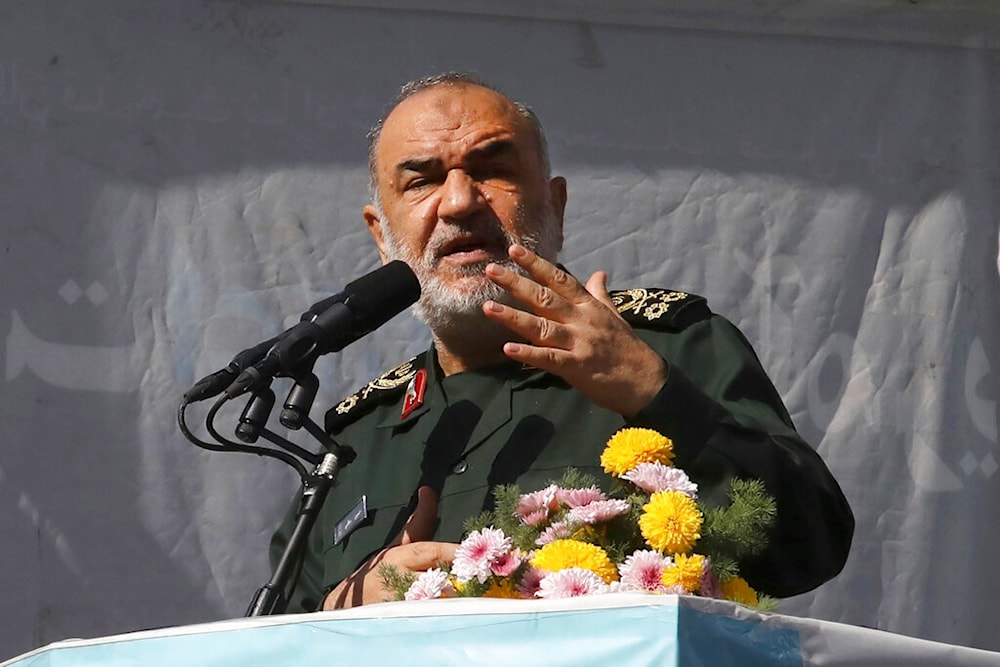Iran's Operation True Promise could be repeated: IRGC Commander
The IRGC's Commander-in-Chief says that had Iran executed a second phase of the operation, the capability of Israeli defense systems would have decreased by at least 50%.
-

Hossein Salami, the Commander-in-Chief of Iran's Islamic Revolution Guards Corps (IRGC) addresses the crowd during a rally outside the former US Embassy in Tehran, Iran, on Thursday, Nov. 4, 2021. (AP/Vahid Salemi)
Operation True Promise was "the most exceptional decision" made by the Islamic Establishment in Iran, Hossein Salami, the Commander-in-Chief of Iran's Islamic Revolution Guards Corps (IRGC), expressed, warning that the attack could be repeated.
On April 13, Iran launched Operation True Promise in retaliation to the Israeli aggression that targeted the Iranian consulate in the Syrian capital Damascus on April 1 and killed seven IRGC advisors.
During a ceremony commemorating National Teacher's Day in the country, Salami underscored that the operation symbolized the Iranian people's determination and reflected Iran's "great courage" and "deep wisdom".
He highlighted that it was the first time in decades that a force had shifted the war into the territories occupied by the Israeli entity, adding that "Israel" experienced eight hours of panic, fear, and confusion during the retaliatory attack.
The commander mentioned that Iran, on the one hand, launched Operation True Promise against one target only - the Israeli occupation entity - using a small fraction of Iranian power. But "Israel", on the other hand, used vast geography to intercept Iranian drones and missiles from the Mediterranean and Red Seas, as well as from several countries, including Saudi Arabia, Iraq, Jordan, Turkey, and Greece, and from within occupied Palestine, he noted.
Salami recalled that Tehran carried out the operation without using the element of surprise, meaning that "Israel" already knew the timing of the strikes and the target locations.
He indicated that had Iran executed a second phase of the operation and launched drones and missiles toward the entity, the capability of Israeli defense systems would have decreased by at least 50%.
The IRGC commander attributed the revelation of the Israeli regime's intelligence failure to the Palestinian Resistance's Operation Al Aqsa Flood on October 7, adding that Iran's Operation True Promise further exposed "Israel's" failed deterrence.
Salami commended Iran for emerging victorious and resilient after enduring pressures and sanctions for over four decades.
"One cannot find in history a country like Iran that has been dealing with traditional and modern wars for four and a half decades with an enemy that possesses half of the economic, cultural, military, and political power of the world, but after all this period it is in its most powerful, commanding and strongest position," he emphasized.
Earlier, the Israeli Army Radio revealed that the American anti-air system that attempted to intercept Iranian ballistic missiles launched toward Israeli targets "failed in most cases," noting that out of 8 American missiles launched from the sea, only two succeeded in intercepting the Iranian missiles.
Read more: Iranian attack shows Israeli dependence on allies: Ex-US NATO envoy

 3 Min Read
3 Min Read








